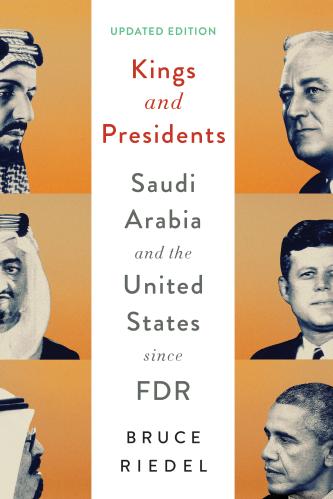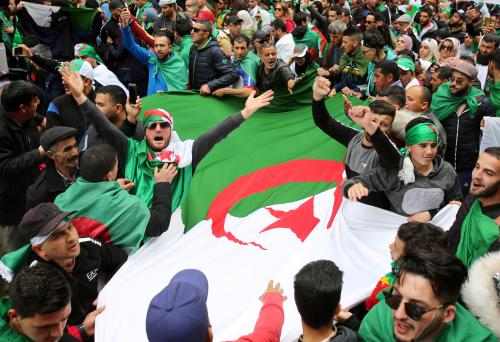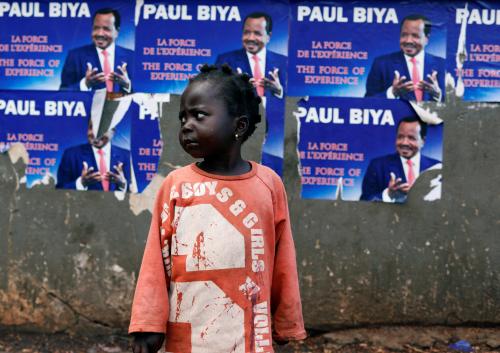The ongoing popular demonstrations in Algeria, which have toppled the regime of President Abdelaziz Bouteflika, are perhaps the most important political dynamics in the Arab world today. The demise of the old regime, still far from complete, in the largest country in the Arab world and in Africa, is important to American interests in both. The United States has had a complex relationship with the Algerians in the modern era; it’s unfortunately unlikely the Trump administration will be a helpful factor in Algeria’s quest for political reform.
The United States fought one of its first foreign wars against Algiers during James Madison’s administration to discourage Barbary piracy. After the French invaded and colonized the country, Americans largely lost interest in the region. Franklin Delano Roosevelt brought it back to the front burner in 1942 when American troops liberated Algeria from the Vichy French regime aligned with Nazi Germany. Tens of thousands of American GIs passed through Algiers and Oran to fight in Italy, including my father. The defeat of the Vichy helped indirectly to encourage the Arab nationalist movement in Algeria.
After the end of World War II, Washington acquiesced in the return of French colonialism. When France became a charter member of NATO, the alliance accepted Paris’ demands that Algeria be treated as a part of the mother country and not as a colony like Tunisia or Mali. The Truman and Eisenhower administrations accepted the French argument that due to the settlement of almost a million Europeans in Algeria, it was a permanent part of the French State. A violent independence movement revolted against France in the 1950s, and Bouteflika was one of its leaders.
Then Senator John F. Kennedy was the first American political figure to break with France and endorse Algerian independence during its long war for freedom. On July 3, 1957, Kennedy publicly called for the United States to support Algerian independence and oppose the French war to keep it. The speech, his first big foreign policy address, was entitled “Imperialism—The Enemy of Freedom.” The speech was a breakthrough moment for JFK, establishing him as a progressive cold warrior more in touch with what was then called the Third World than Eisenhower. The Algerians still remember Kennedy’s address.
After he became president in 1961, Kennedy worked to support Charles DeGaulle’s moves to give Algeria independence in the face of fierce resistance from the settlers and diehards in the French army. At the height of the Cuban missile crisis, Kennedy welcomed the first Algerian prime minister to the White House for an official visit.
During the Cold War, Algeria was in the Soviet camp but maintained a working relationship with Washington. In 1980, Algeria successfully mediated the end of the Iranian hostage crisis. President Carter gave the Algerians much credit for helping bring home the Americans from Tehran.
In 1992, after elections brought an Islamist government to the brink of power, the army took over and instituted a reign of repression. George H.W. Bush’s administration stood quietly with the army, encouraged by the Saudis and other reactionaries in the region. The first Bush administration was very close to the House of Saud especially by 1992 after Desert Storm.
When Bouteflika came to power in 2000, both the Clinton and Bush administrations welcomed the change and Bouteflika’s moves to end the bloody civil war that had followed the army coup. Bill Clinton met him in Rabat at King Hassan’s funeral. George W. Bush welcomed Bouteflika to the White House. After 9/11, Algeria provided excellent intelligence on al-Qaida.
The Obama administration kept its own counsel as Bouteflika’s regime became an increasingly narrow police state run by a coalition of generals and oligarchs, called Le Pouvoir. After Bouteflika’s stroke in 2013, the Obama team did quiet contingency planning for dealing with his departure, but Le Pouvoir preferred an incapacitated figurehead to the potential upheaval of removing him.
The United States has an interest in a stable and nonviolent transformation of Algeria to a more open, transparent, and broad-based government. The continuation indefinitely of police states across the Arab world is a recipe for more terrorism and extremists. As a major Arab country with oil and gas reserves, a democratic Algeria could become a potent symbol for reform and free elections. Which is precisely why the reactionary states are worried.
Unfortunately, the Trump administration is in the pockets of the autocrats and absolute monarchies. The Saudis and Egyptians will encourage the administration to stand with the army and the oligarchs. Already they have persuaded the president to back the General Khalifa Haftar movement in Libya, which borders Algeria. And they are trying to buck up the army in Sudan.
The United States should follow JFK’s lead and put its public weight behind change in Algeria. The reactionaries are on the run in Algeria today, several oligarchs have been arrested and the street protests have not wound down. The road ahead will be a difficult one for the reform movement, America’s role should be to be with them.
The Brookings Institution is committed to quality, independence, and impact.
We are supported by a diverse array of funders. In line with our values and policies, each Brookings publication represents the sole views of its author(s).








Commentary
Algeria and America: A complicated past, an uncertain future
April 25, 2019